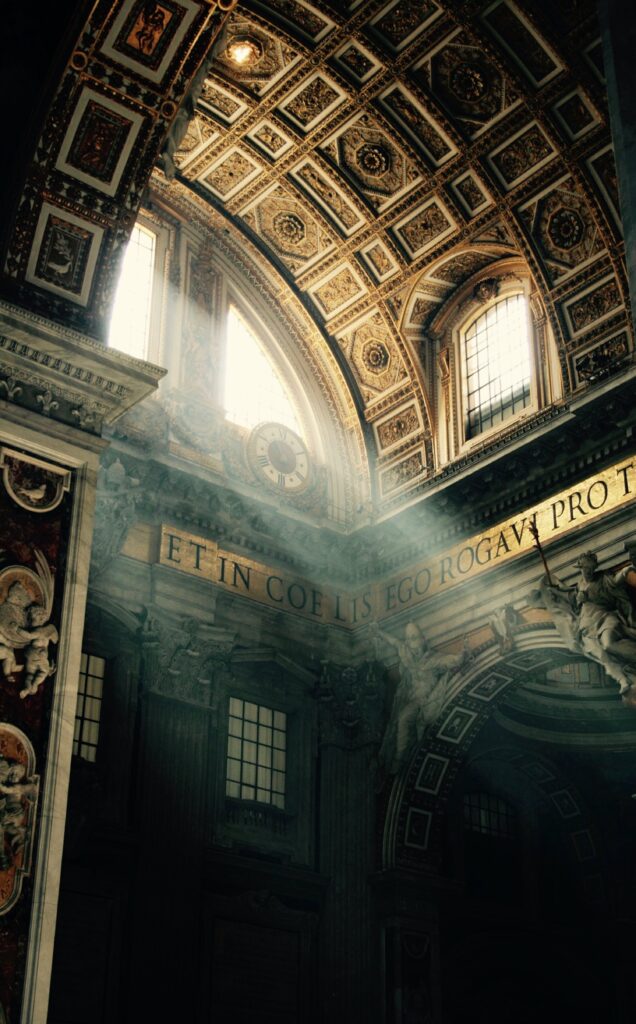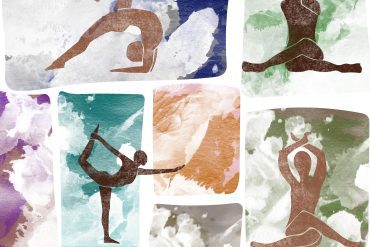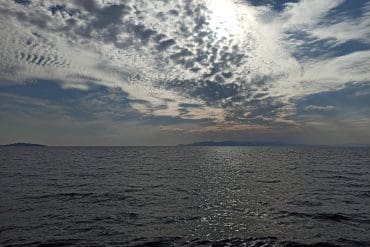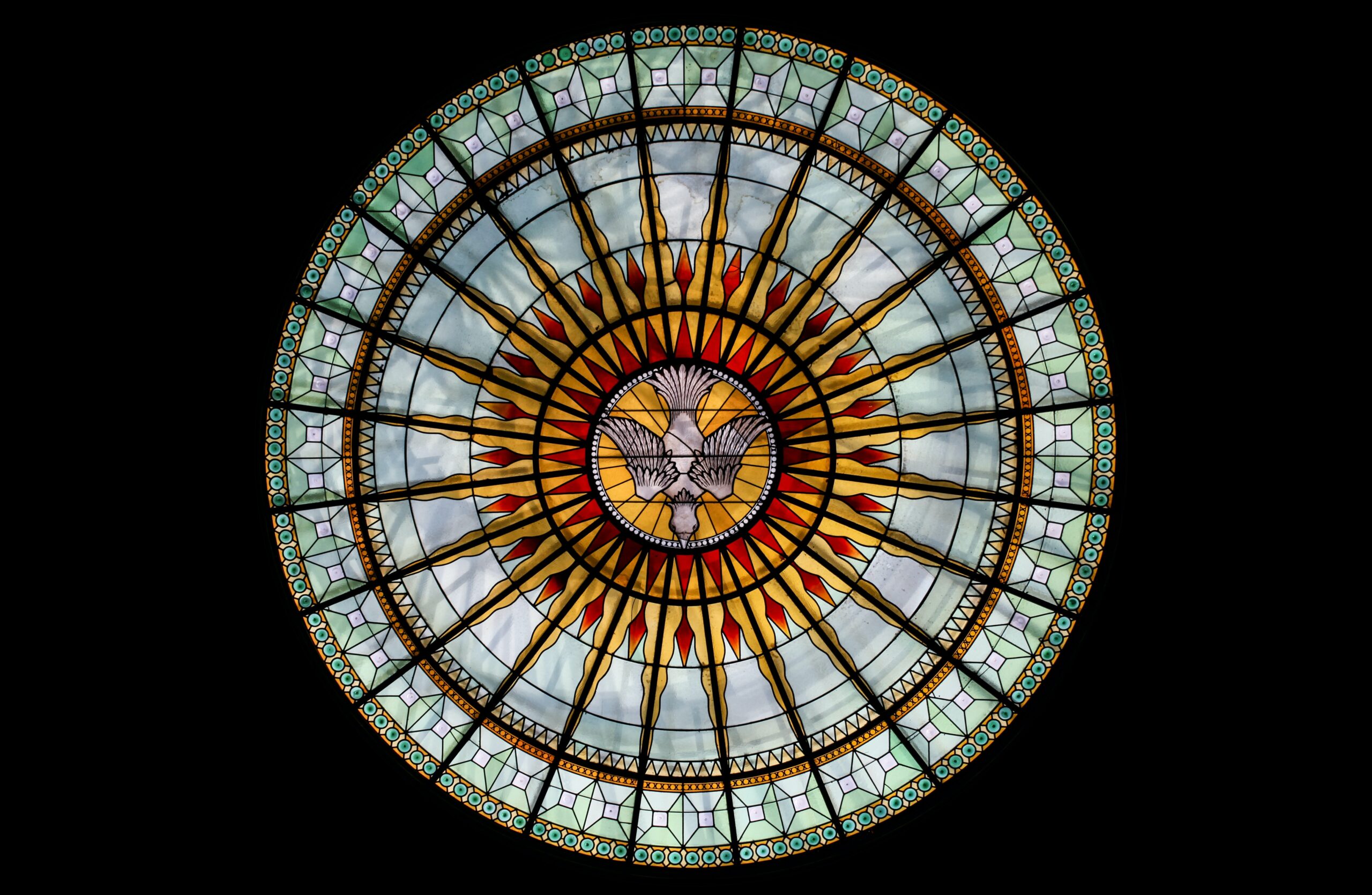Negative Depictions of the Catholic Religion: Be Not Afraid, Never
These original works of poetry have been specifically composed and integrated into my capstone thesis project. Throughout the project, I discuss how Catholicism is weaponized in the media and seen as something that incites terror among participating members; so, the goal of my project is to assess the role of “fear” in the development of perceptions and interpretations of Catholicism. In my research, I have found that much of the current analyses into both Catholicism and fear suggest that fear is a consequence of faith, but I wanted to fill the gap in the research by presenting more complex and intimate analyses of my personal experiences as a means of explaining that fear is also the genesis of faith.
‘The goal of my project is to assess the role of “fear” in the development of perceptions and interpretations of Catholicism.
For my project, I analyzed three traditionally and particularly Gothic pieces of literature featuring stereotypical and negative depictions of the Catholic religion that have been constantly adapted throughout the years: Dracula, The Picture of Dorian Gray, and The Hunchback of Notre Dame. While all of these texts feature horrific elements that are fitting in the Gothic genre, they also feature frightening facets of the Catholic religion that elicit feelings of horror and unease: temptation and justification, repression and reconciliation, and judgment.
In all of these elements, additionally, there is an overwhelming fear that manifests within some people– fear that they will not be awarded with the gift of eternal life; and this idea that faith and religion causes fear is represented in the first three poems of this submission. So, I highlight these negative depictions and discuss how they differ from my own experiences as a Catholic in my poetry and analysis.
‘So, I highlight these negative depictions and discuss how they differ from my own experiences as a Catholic in my poetry and analysis.
My own experiences with faith and fear are highlighted throughout my writing, but they are most prominent in the latter half of my poetry submission. The final three poems basically illustrate the idea that fear is what inspires faith and belief. Fear of death, and what happens after death, can certainly be a compelling reason to believe in a higher, divine power. In my experience, there is a welcoming warmth and feeling of comfort that comes from having faith and believing that you are worthy of salvation; and showcasing God’s grace and mercy within my poetry was important for both my project and my soul. As someone who finds the religious practice of reconciliation to be incredibly intimidating and terrifying, I therefore used my poetry as a form of confession in the hopes that it would bring me some form of comfort and peace.

Negative Depictions of the Catholic religion: Be Not Afraid, Never
Fear as a Consequence of Faith: Temptation and Justification
I make sure that I pray with my right thumb resting over my left.
I kneel, I stand, I sit, I bow, and I kneel again.
I remind myself to drop my right knee, hesitating before I genuflect.
Under omnipotent eyes, I participate in the ritual to avoid disdain.
Keep holy the sabbath day.
Honor thy mother and thy father.
Keep God at the forefront of your mind, they say.
Tremble at the sight of Christ on the cross, a martyr.
You have a choice: Abstain or Absolve
A double-edged sword: Refrain or Reconcile.
Resisting sin limits your ability to indulge, it starves.
Sin starves you of the promise for eternal life as God’s child.
Fear as a Consequence of Faith: Repression vs. Reconciliation
Bless me, father, I am not perfect. I have sinned.
Bless me, father, my sins are the same as they were before.
Bless me, father, I know not how long it’s been.
Bless me, father, but you will hear from me once more.
O, my God, I’m heartily sorry for sinning yet again.
O, my God, I’m heartily sorry. To you, I will once more give offense.
O, my God, I’m heartily sorry for not seeking proper absolution.
O, my God, I’m heartily sorry. From me, you will not receive full recompense.
Fear as a Consequence of Faith: Judgment
A stern voice echoes through the small, dark space
It rings out like a gavel on a block,
Thine eyes can not see scorn, contempt, disgrace;
‘Tis known that judgment strikes upon the flock.
Thou shalt not draw thy sword to slay the meek.
Thou shalt not steal or cheat or lie.
Thou shalt be true and just or thou art weak.
Thou shalt obey the laws of God or die.
The fires of Hell, they rise and rage. They lure.
These times are dark and sad; the end is near.
They call for sinners: villains, cheats, and whores.
Reap seven times for seven crimes and fear.
The righteous, just evangelists stand tall.
They smile upon dark angels as they fall.
Fear as a Genesis of Faith: Temptation and Free Will
A dark shadow passes over me
Passes over me
The weight of it presses onto my back,
Keeping me from ever being free.
It’s cold, it grows. Like a monster, it feeds.
It becomes all that I can see.
‘Tis no light as darkness passes over me.
It passes over me.
A dark shadow passes over me
Passes over me
Unveiling my worth
My lack of morality
I deny not His love or mercy.
I nurture my hope and belief.
I deny the shadow passing over me
For soon, that shadow will leave.
Fear as a Genesis of Faith: Reconciliation and Penance
I carry my cross to thee
Carry my cross to thee
I struggle and stumble over rocks
I am drowning in the seas
A grip that blisters and burns and bleeds.
I dare not let go. I never release.
I carry my heavy cross to thee.
I carry my cross to thee.
I carry my cross to thee
Carry my cross to thee
I look up and I pray to the Lord,
“Please, have mercy on me.”
My voice is tired. Lord, hear my plea.
Give me rest, and help me find peace.
I carry my woeful cross to thee
In hopes that He will absolve me.
Fear as a Genesis of Faith: Purgatory, Hell, or Salvation
I am brought down to my knees
Bent down on my knees
I ask you all of the questions I have
And wait for the answers I seek.
What lies beyond? Eternity?
Can suffering end? Will I ever be free?
Before you, I cry and fall onto my knees.
I bow and fall onto my knees.
I am brought down to my knees
Bent down on my knees
Darkness, sorrow, fear, and guilt
Fill my heart while a warm light beckons me.
Still, O God, I pray and weep.
Save my soul and set me free.
You have brought me to my knees.
Fallen before you, I choose to believe.
Credits
Featured image of a church Vitral in St Potin, Lyon, France by Thai Ch Hamelin Chokdidesign for Unsplash
Photo of St. Peter’s Basilica, Città del Vaticano by Chad Greiter for Unsplash
Learn More
New to autoethnography? Firstly, please visit What Is Autoethnography? How Can I Learn More? to learn about autoethnographic writing and expressive arts. Interested in contributing? Secondly, view our editorial board’s What Do Editors Look for When Reviewing Evocative Autoethnographic Work?. Accordingly, check out our Submissions page. View Our Team in order to learn about our editorial board. Please see our Work with Us page to learn about volunteering at The AutoEthnographer. Lastly, do visit Scholarships to learn about our annual student scholarship competition.
Kris Lanerie was born in a small town in Louisiana, surrounded by faith, love, and absurdity. She writes from a place of love and individualism. Her interests in religious allusion, symbolism, and realism are evident throughout her prose, poetry, and the scraps of paper that end up in her trash can.









